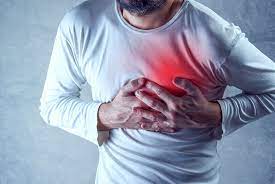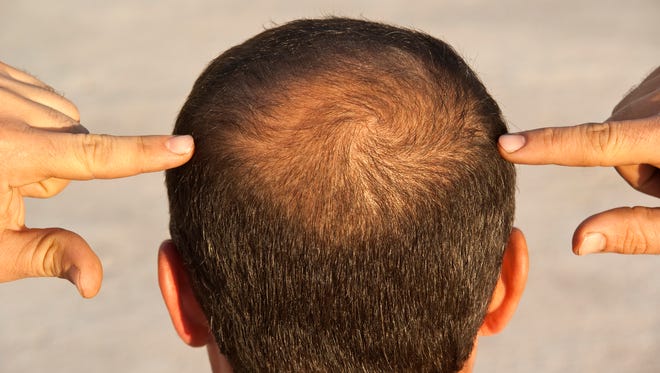Congestive Heart Failure is a chronic progressive condition where the heart cannot pump adequate blood to meet the body’s requirements.
Congestive heart failure treatment is required when the heart’s pumping capacity is affected due to some mechanical difficulty.
In this condition, the heart muscles become stiff or ineffective and do not contract as they should. As such, blood returns to the heart faster than it can get pumped out, thus congesting it.
The heart tries to cope with its reduced pumping capacity by beating faster. But with time, the extra effort wears out the heart muscles, and the blood circulation reduces more, causing vibration. As a result, the heart enlarges to make room for blood, filling the lungs with fluid, resulting in shortness of breath.
When sufficient blood does not reach the kidney, it starts retaining sodium and water, resulting in kidney failure.
You can access congestive heart failure treatment at the first onset of symptoms. Starting the diagnosis and treatment early increases your chances of a healthy and disease-free life.
Stages of congestive heart failure:
Stage 1: No symptoms are experienced, and you can easily carry on with your usual physical activities. Lifestyle changes followed by heart medications will be sufficient to manage CHF at this stage.
Stage 2: None to mild symptoms observed at rest. But you may experience palpitation, fatigue, or shortness of breath during physical activity or stress.
Lifestyle changes, heart medications, and preliminary congestive heart failure treatment will help you manage the condition.
Stage 3: None or mild symptoms were observed at rest. But your physical activity gets limited, and even little physical activity may increase your discomfort, fatigue, and breathlessness. At this stage, you should seek Congestive heart failure treatment actively and consult your doctor about the treatment procedure.
Stage 4: Symptoms are present even at rest, and you cannot carry out any physical activity. Though congestive heart failure cannot be cured at this stage, a healthy lifestyle, proper care, and congestive heart failure treatment can achieve some semblance of normalcy.
Types of congestive heart failure:
Congestive heart failure is of the following types:
1. Left-sided heart failure:
This is the most common form of congestive heart failure resulting from coronary artery disease. The symptoms may include:
- Shortness of breath
- Wheezing and coughing
2. Right-sided heart failure:
It usually follows a left-sided heart failure. But it can also happen due to other causes like hypertension or pulmonary diseases. The symptoms include:
- Fluid retention in legs, genital area, and abdomen
- Bloating and nausea
- Unnatural weight gain
3. Biventricular heart failure:
This type of heart failure affects both sides of the heart. The following symptoms may be observed:
- Shortness of breath
- Breathlessness, especially at night
- Fluid retention in legs
- Coughing and wheezing
4. Diastolic heart failure:
When the heart muscles stiffen, it is unable to pump blood normally. This causes added pressure to the heart, and fluid builds up in the lungs due to congestion. This condition is referred to as diastolic heart failure. The symptoms include:
- Swelling in legs
- Fatigue and exhaustion
- Shortness of breath when lying down
Symptoms:
The symptoms of congestive heart failure range from mild to severe. These symptoms may occur in intervals or may be consistent. However, you should seek congestive heart failure treatment if the following symptoms persist:
1. Shortness of breath:
Probably the most common symptom associated with congestive heart failure. The shortness of breath occurs due to fluid retention in the lungs, or pulmonary edema, mainly when lying down. It may be followed by wheezing and a dry hacking cough.
2. Weakness and fatigue:
Due to inadequate blood reaching the muscles, brain, and other organs, you may feel tired and weak, and experience confusion.
3. Edema:
Shortage of blood reaching your kidney results in fluid retention, which causes swollen ankles, abdomen, leg, and weight gain. The stomach gets bloated, causing a loss of appetite and nausea. There may also be an increased need to urinate, especially at night.
4. Rapid, irregular heartbeat:
The heart tries to make up for its low blood pumping power by pumping harder and faster to provide adequate blood supply to the body. Unfortunately, this causes rapid and irregular heartbeat.
5. Chest pain:
Another common symptom of congestive heart failure is chest pain originating from the chest and gradually spreading through the body. If the chest pain becomes severe, you should immediately seek Congestive heart failure treatment.
What causes congestive heart failure?
Congestive heart failure can occur due to damage to the heart muscles. Congestive heart failure can be caused due to the following reasons:
1. Heart attack:
Sometimes the heart muscles get damaged due to any sudden blockage of coronary arteries. This may scar and damage the heart’s blood pumping capacity. Any fixed blockage also increases the demand for blood flow, thus causing damage to the heart.
2. Coronary Artery Diseases:
Coronary arteries are responsible for blood flowing into the heart muscles. When these arteries become congested or narrow, the heart does not receive the blood it needs.
3. Nonischemic cardiomyopathy:
In this condition, the heart muscles are weakened by reasons other than coronary artery blockage. These causes may include medicinal side effects, infection, or a genetic condition.
4. Other conditions:
High blood pressure, diabetes, kidney and valve diseases, and heart condition by birth can also cause congestive heart failure.
Other risk factors which may lead to congestive heart failure treatment are:
- Type 2 diabetes
- Smoking
- Obesity
- Thyroid
- Anemia
- Lupus
- Arrhythmia
- Myocarditis
- Amyloidosis
- Atrial fibrillation
- Hemochromatosis
Prevention:
Congestive heart failure can be avoided if you adopt healthy lifestyle changes and nip the problem at its bud. To achieve a healthy heart and prevent CHF, the following points should be kept in mind:
- Avoid smoking: Both active and passive smoking results in arterial damage resulting in congestive heart failure.
- Healthy diet for a healthy heart: Consuming fruits, vegetables, lean meat, and low-fat dairy ensures that you remain “healthy at heart.”
- Lose extra weight: If you are suffering from obesity and are overweight, a physical exercise routine and a balanced diet will ensure that you lose those extra pounds and lessen your risk of congestive heart failure.
Though CHF is not wholly treatable, seeking congestive heart failure treatment can lessen the severity of the symptoms and effectively improve your quality of life and increase life expectancy.
Read Also: What Is Pericarditis and Could You Have It?





